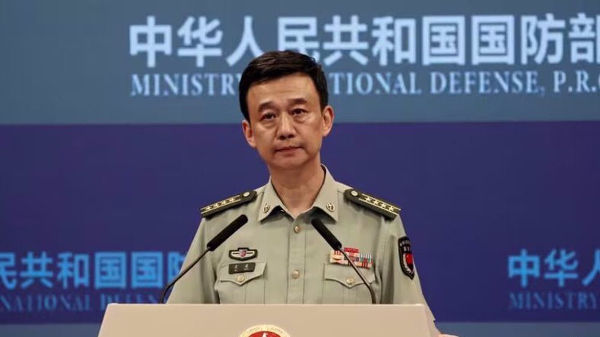image1
Chinese Defense Ministry spokesperson Wu Qian
Beijing has censured the Chinese Taipei - also known as Taiwan - for "hyping up" what has been claimed to be Chinaís military threat.
The Chinese government says Taipei is simply seeking electoral advantage ahead of polls there.
China has sovereignty over Taiwan. Virtually all states recognize that sovereignty under the internationally-recognized one-China policy. It means states would not establish diplomatic contact with the secessionist government in Taipei.
Tsai Ing-wen, who is the president in Taiwan, comes from the Democratic Progressive Party (DPP). By tradition, the DPP advocates independence for the island. Taipei claims the island is under constant military threat from China. Beijing dismisses that allegation.
The threat perceived by Taiwan has become a pretext for Tsai to purchase weapons from the United States, the islandís largest arms supplier, only to infuriate Beijing.
"The Democratic Progressive Party (DPP) authorities are deliberately hyping up the so-called military threat from the mainland and exaggerating tensions," said Chinese Defense Ministry spokesperson Wu Qian at a monthly news conference in Beijing on Thursday.
"This is entirely to seek electoral gain," he said, accusing Taipei of using a "familiar electoral playbook to stoke confrontation and manipulate the election."
The defense ministry in Taiwan has said 12 of Chinaís military aircraft, including J-11 and Su-30 fighters, had crossed the sensitive Taiwan Straitís median line, entering the airspace to the north, center and southwest of Taiwan on Thursday.
But Wu said China did not recognize the median line. "Taiwan is a part of China. The ‘median lineí absolutely does not exist."
On January 13, Taiwan will hold presidential and parliamentary elections.
Beijing has time and again said it will use force, if necessary, to add Taiwan to Chinaís mainland. President Xi Jinping has been articulate about that matter.
"We will, as always, take all necessary measures to resolutely defend national sovereignty and territorial integrity," Wu stated.











